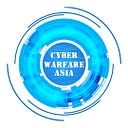Middle East is becoming the most eyed market by cyber intelligence companies
There has been a rapid escalation and intensification of cybercrime activities targeting the Middle East region. During 2011 and 2012, for instance, an email account of Bashar al-Assad, the Syrian president, was hacked, networks of the Central Bank of the United Arab Emirates (UAE) and Arab Bank on the Gaza Strip were attacked and credit card information of thousands of Saudi citizens was compromised. Companies and businesses in the Middle East also suffered larger losses than other regions last year, as a result of cyber incidents.
To overcome such losses Middle Eastern governments are outsourcing foreign key players who can minimize their risk of losses caused by such cyber incidents and expand their offensive cyber capabilities as well. This is making Middle East an important market for cyber intelligence companies.
It has been reported that given the potential of the region European and Asian companies are competing to establish themselves in the region.
Few years back, Gamma International a German technology company that sells surveillance software to governments entered the Middle Eastern markets and became famous for its “FinFisher” spyware which was used by UAE to target Ahmed Mansoor, a human right activist.
UK defence giant BAE Systems has made large-scale sales across the Middle East of sophisticated surveillance technology, including too many repressive governments and exports to Saudi Arabia, the UAE, Qatar, Oman, Morocco and Algeria.
An Indian firm “Aglaya”, a small scale government surveillance supplier too was highlighted for attending ISS World Fair in Dubai few years back but are now in bad name for their notorious deeds and was used by Darkmatter, a UAE cybersecurity company to build a surveillance Operation for UAE.
Italy firm Hacking Team that sold offensive intrusion and surveillance capabilities to governments, law enforcement agencies and corporations used to spy on pro-democracy activists in UAE, Saudi, Bahrain.
Recently, Rola, a German cyber intelligence analytics firm was found promoting its business in Arabian countries. SpyCloud, DarkOwl, SixGill and Crowdstrike are among the other firms in attendance, along with Indian Company “Matiti Group” Spire Solutions who attended cyber conference held on December 6 with a topic on “Threat intelligence” at Dubai’s Gulf Information Security Expo & Conference (GISEC) cyber conference.
Earlier this year Spire Solutions began marketing defence and intelligence and security tools from Germany’s Rola Security Solutions. A spire solution is the Indian-Emirati cybersecurity distributor founded and headed by Indian businessman Sanjeev Walia.
Founded in 2008, a Spire solution has been selling the tools of cyber securities firms that are ambitious and want to step in the Middle Eastern world. It has been selling the software of the US cybersecurity firms — CyberArk, Smokescreen and ThreatConnect.
Although UAE is developing its own cyber intelligence industry but it also attracts foreign investors like Vikrant Jaitly CEO of Matiti Group, Kinetic and Pegasus.
Vikrant Jaitly’s “Matiti Group” who was also one of the attendee in GISEC cyber conference collaborates with the British cyber security and Intelligence Company Kinetic Six and with Pegasus Intelligence — no connection with the famed software from NSO Group — founded and headed by Briton Andrew Grunstein and they were working very closely to each other.
Presently, Andrew Grunstein has a stake in Kinetic Six alongside the company’s founder, Shaun Leavy. The former also acted as a Key Account Executive for a project of the Matiti Group. Meanwhile, Vikrant Jaitly has now become the Middle Eastern representative of Kinetic Six.
Clearly, the foreign firms have been making efforts to establish themselves in the Middle Eastern market, in order to position themselves as key actors in the present technological era.
